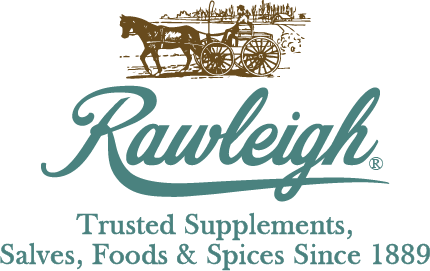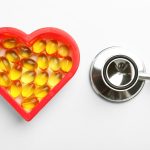Oral Chelation - Facts and Myths
What is Oral Chelation?
Metals (lead, mercury, iron, calcium, etc.) and other harmful substances can build up in our bodies over time. This usually happens due to industrial exposure, air and water pollution, food, medicines, ingestion of lead-based paints, and improper coating on food containers. Chelation refers to the removal of those heavy metals and other harmful buildups from the bloodstream.
There are two main methods of conducting chelation therapy. The first is infusing a chelating agent, also known as a chelator, into the body through an intravenous solution. The second is delivering the chelating agent into the body orally.
Oral chelation is a safer, non-surgical, and non-medical method where vitamins for cardiovascular health or a cholesterol supplement are used to remove harmful substances from the body.
How Does Oral Chelation Work?
A cardiovascular supplement works as a chelating agent for oral chelation therapy.
A chelator has a claw-like chemical structure; it seeks out the metals in your blood and binds to them. Once the drug latches onto the metal molecules, they form compounds that are filtered out through the kidneys and passed through your body during urination.
Before moving on to the therapy, doctors perform a blood test to ensure you have metal buildup in your blood. A thorough evaluation of your body's nutritional status is also done before starting with oral chelation. This is because chelating agents in a cardiovascular supplement may also bind to some essential minerals causing deficiencies in your body. You must be careful about maintaining your body's nutritional balance while detoxifying your body.
When is Oral Chelation Used?
Chelation is mainly used for people suffering from heavy metal poisoning. This mostly occurs in people exposed to industrial, agricultural, and sewage waste. It may also happen due to consuming a certain food item or using certain medicines.
The level of heavy metal toxicity depends on factors like the duration of exposure, the type and amount of metal absorbed into the body, the patient's age, etc. A person suffering from metal poisoning may have symptoms like vomiting, diarrhea, stomach pain, dehydration, weakness, nausea, and anemia.
Some healthcare providers have been considering oral chelation as an alternative to reduce the risk of heart diseases and other ailments. They claim this therapy can rejuvenate the heart and blood vessels, enhance kidney and liver function, and increase blood flow to the brain by removing toxic buildups in your blood.
So far, this therapy has been tried to reduce the symptoms of Alzheimer's, autism, and heart diseases. But more research and solid evidence are needed to gauge its effectiveness for these ailments.
Please note that the Food and Drug Administration has approved this treatment to treat metal poisoning only.
Does a Cardiovascular Supplement for Oral Chelation Help With Heart Diseases?
Supplements to lower triglycerides and cholesterol are being increasingly used for oral chelation. People have this huge misconception that a cholesterol supplement or vitamins for cardiovascular health have the potential to cure their heart disease completely. But that isn't true at all.
Chelation therapy has been used as a treatment for mercury and lead poisoning for a long time now, but it's not a proven treatment for heart problems. However, a few studies indicate that it may help reduce the risk of cardiovascular problems, like heart attacks and strokes, for certain people.
Heart diseases occur when fatty deposits called plaque build up in your arteries. Plaque buildups cause blood vessels to narrow and become less flexible, making it difficult for the blood to flow through them. Since plaque contains calcium, the chelating agent in a cardiovascular supplement binds to this mineral and clears the clogged arteries. However, this theory is still not backed up by solid scientific evidence.
Research on Chelation Therapy
Multiple studies have been conducted to test if chelation therapy lowers the risk of cardiovascular problems in people who have previously suffered from a heart attack.
The most prominent conclusion from these studies was that a regimen of supplements to lower bad cholesterol used as chelation drugs could reduce cardiovascular problems in people over 50 years with diabetes. Moreover, there was a nominal reduction in the risk of future heart issues in people without diabetes.
In 2002, the National Institute of Health conducted research on chelation therapy called TACT. The results concluded that this treatment could somewhat reduce the risk of heart attacks, strokes, and other heart issues, but only for people with diabetes. The study didn't prove that it could treat heart disease. Also, the FDA hasn't yet approved oral chelation as a treatment for heart conditions. A new study called TACT2 is in progress to yield more information.
However, these results were considered surprising by the American College of Cardiology because previous studies had not demonstrated the same positive results. They speculate that the results in these instances may have resulted from maintaining a healthy lifestyle alongside chelation therapy.
The Conclusion About Oral Chelation Supplements
Natural supplements to lower triglycerides and cholesterol contain micronutrients that can help improve your blood circulatory system. But remember that you should only use oral chelation supplements for cardiovascular support, not as an alternative to medication prescribed by your physicians for heart disease.
WT Rawleigh brings you Super Formula #1 – a honey supplement formulated for oral chelation. This cardiovascular supplement comes in a bottle containing 180 softgels, of which you can take two each day. Besides this supplement, don't forget to maintain a heart-healthy diet containing different fruits and vegetables, get enough sleep, and stay active to keep your heart fit!
* These statements have not been evaluated by the Food and Drug Administration. This product is not intended to diagnose, treat, cure or prevent any disease. It is recommended that a physician be consulted before taking any supplements. Results are not typical and may vary.

